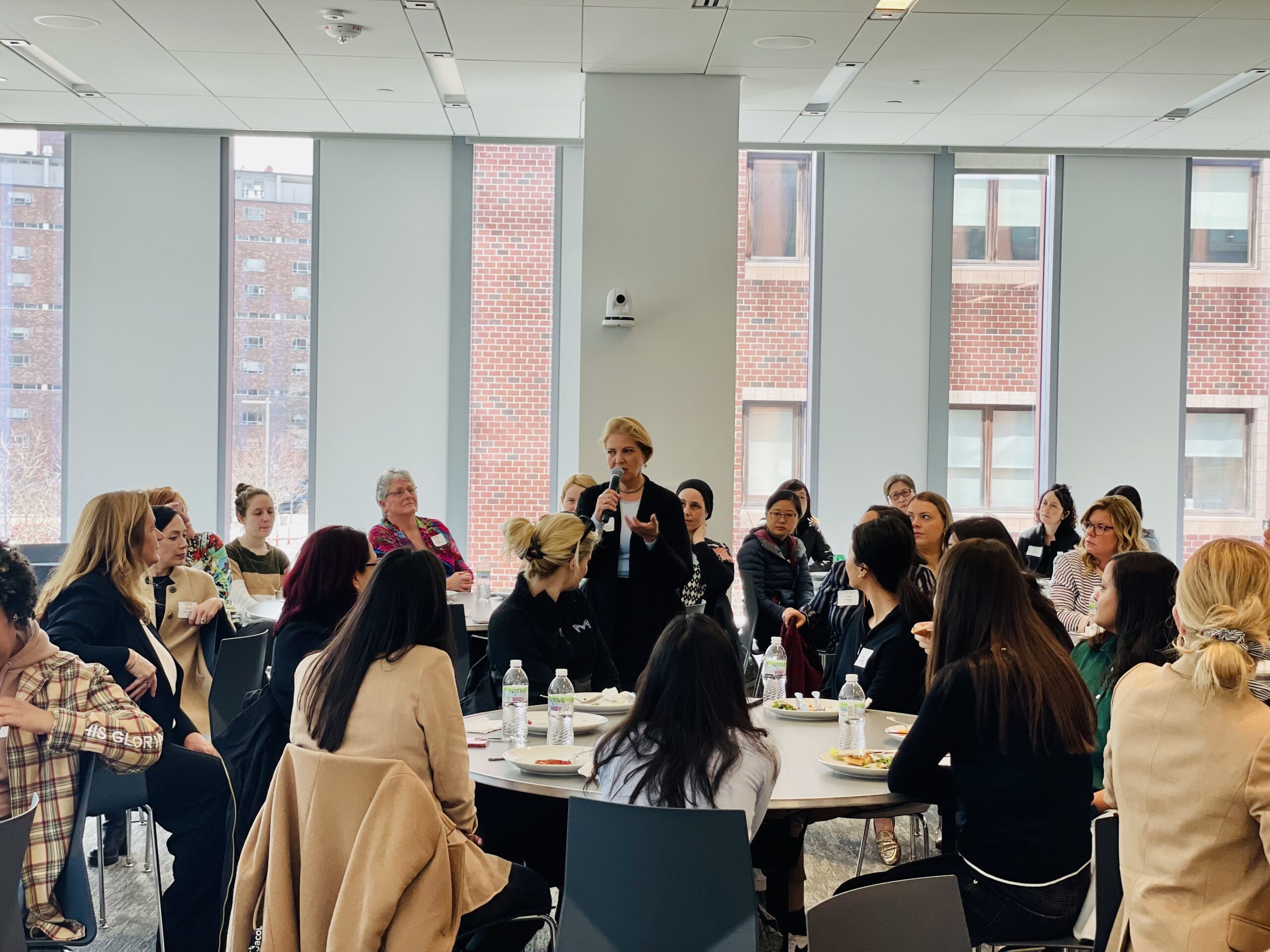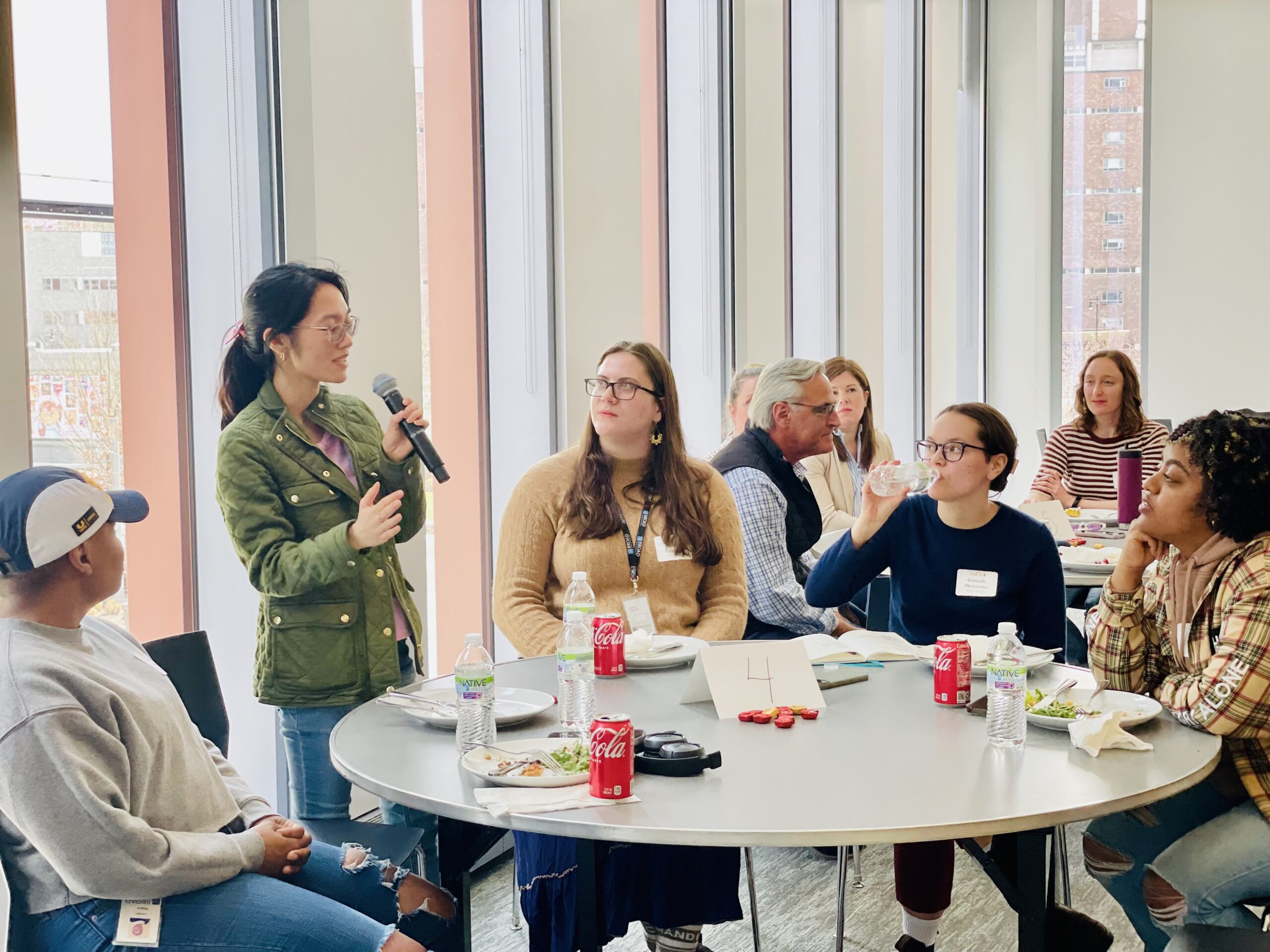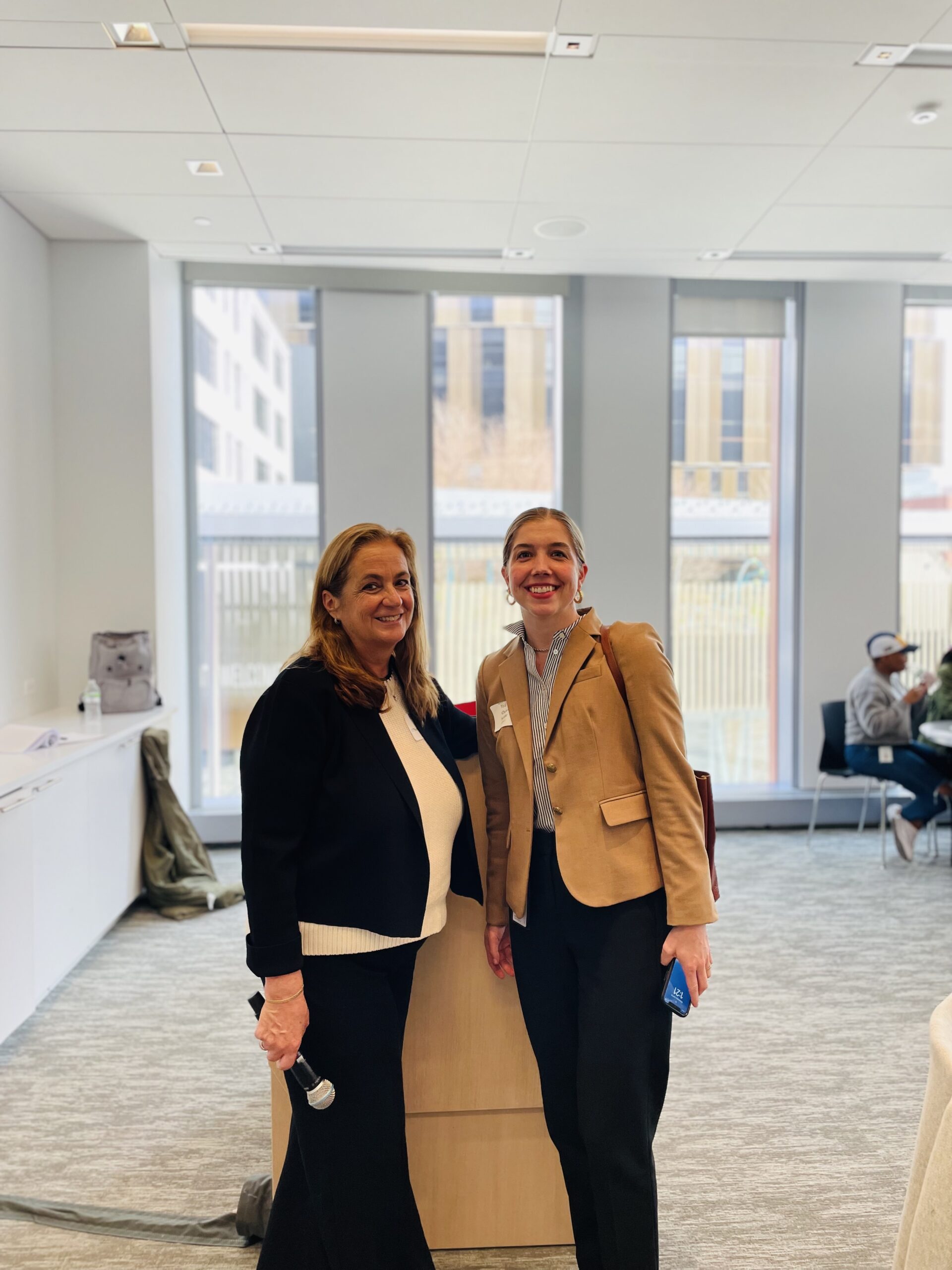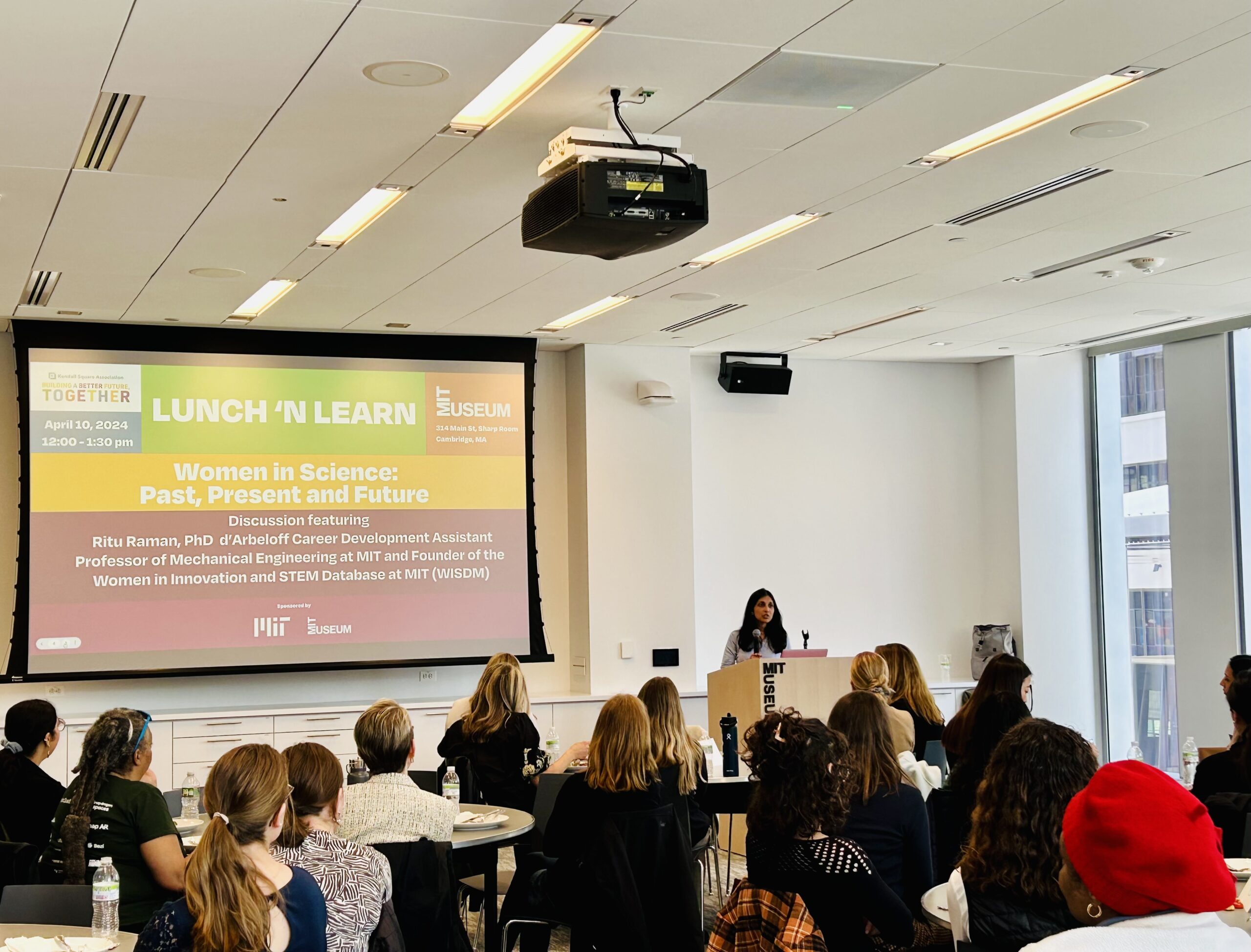KSA’s Women in Science: Past, Present & Future Luncheon
The KSA’s April 10, 2024 Women in Science Lunch & Learn, sponsored by MIT and the MIT Museum, brought together eighty women, and a few men, to talk about the past, present, and future of women in science. The gathering ranged from new employees to senior leaders at organizations across Kendall Square including Alexandria Real Estate, Amgen, ARPA-H, Biogen, Bristol Myers Squibb, Broad Institute, Draper, Jacobs, Johnson & Johnson Innovation, LabCentral, MIT, Novartis, Ragon Institute, Siena Construction, The Engine and more. Competition took a backseat to collaboration, celebration, and a powerful mission: creating community and championing women in science.
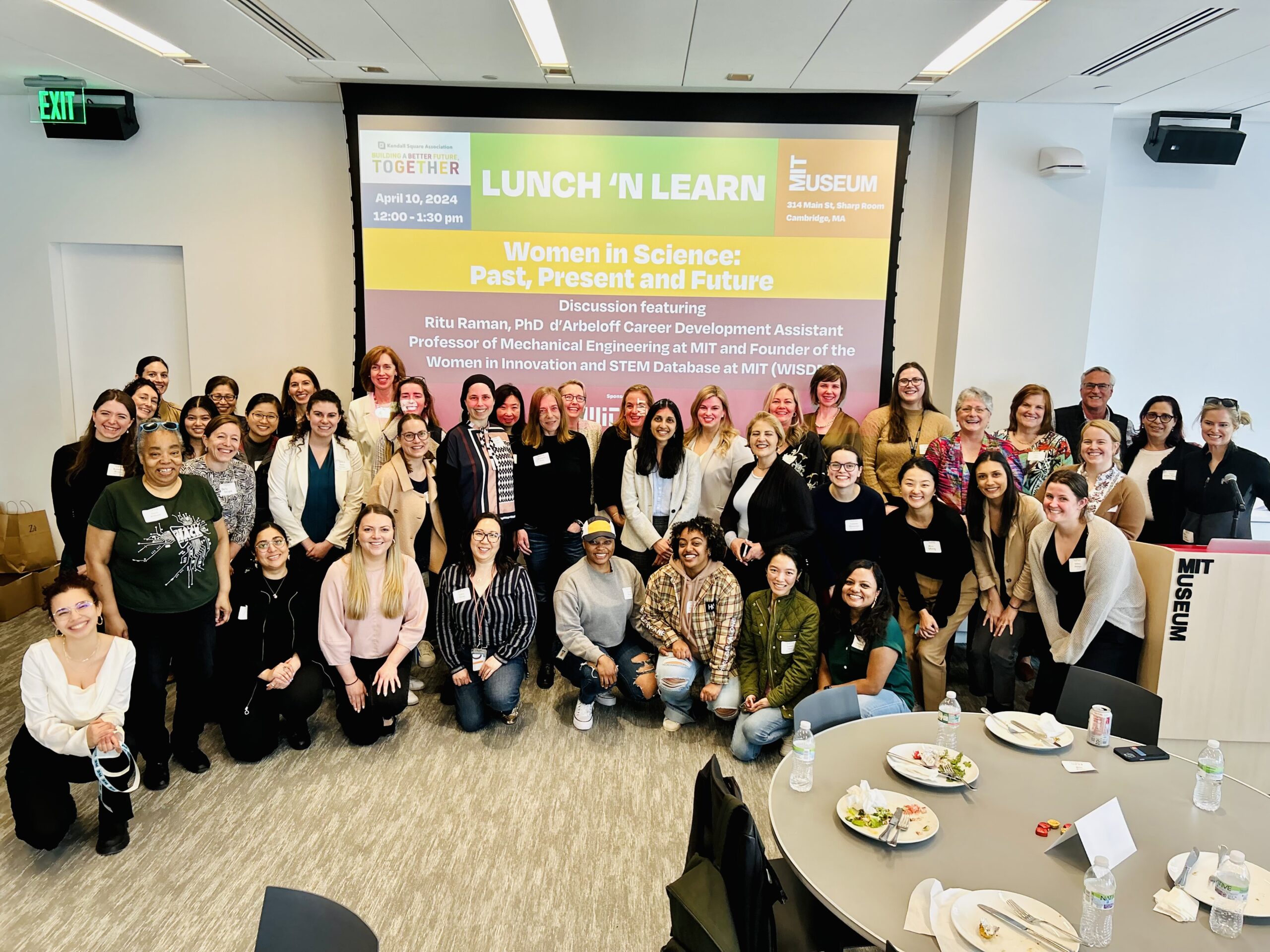
The luncheon began with a look back at Dr. Nancy Hopkins and the tape measure she used to collect data on the inequitable allocation of lab space. Nancy’s presentation of that data and more, together with 15 of her female colleagues, led to then-MIT President Chuck Vest’s actions to address gender inequity and to publicly share MIT’s candid and impactful 1999 Report. Women in science have come a long way in the last few decades, and it showed in the atmosphere at the luncheon which buzzed with positive energy and a collective will to push for a brighter future.
The program opened with a screening of The Uprising, an MIT Press documentary on Nancy Hopkins, her colleagues, and the Institute’s response, followed by a keynote from MIT Professor Ritu Raman, Ph.D. who shared her personal experience and her commitment to building community. Over salad and pizza from Kendall Square’s ‘Za restaurant, the group discussed a series of questions about differences between working in academia versus industry, their own “tape measure” moments, and how to build environments in which women thrive. KSA Executive Director Beth O’Neill Maloney facilitated the conversation.
In her remarks, Dr. Raman underscored the importance of building a network of peers who understand the unique challenges faced by women in science. She called that network a source of strength and encouragement, and a lifeline. Having grown up across continents, when she entered a male-dominated graduate program she was exposed to the isolation many women face. That experience spurred her into action–she founded a women in science group. That group grew quickly, and inspired her to create an online platform WISDM for women in science when she came to MIT, and it was so successful that MIT now supports it. Dr. Raman is committed to building communities where women see themselves reflected, share experiences, and advocate for one another–these communities are empowering and essential in the journey of women in science.
The fight for inclusion in STEM fields is about unlocking the full potential of scientific progress. Near the end of The Uprising, Nancy Hopkins reflects on how she became a “revolutionary” and rejoices in “the success of these women [her peers and new generations of women in science] is the reward for the work we did. That’s really what it’s about. It’s about the science.” Nancy’s story, and the stories of her colleagues and Chuck Vest is well-told in the recent book The Exceptions: Nancy Hopkins, MIT and the Fight for Women in Science. The KSA shared copies of The Exceptions with a handful of fortunate guests.
Inspired, a number of guests set off after the luncheon to see a featured exhibit at the MIT Museum–Nancy Hopkins’ tape measure, a symbol of the historical struggles women in science have faced.
